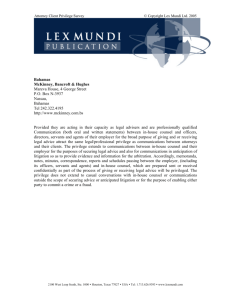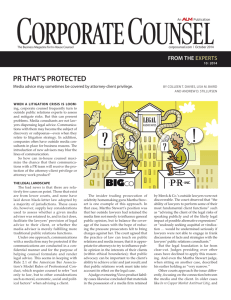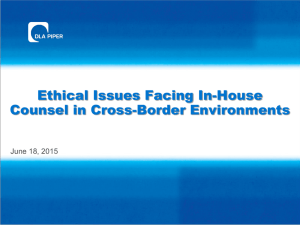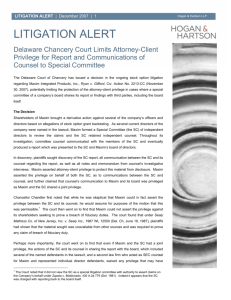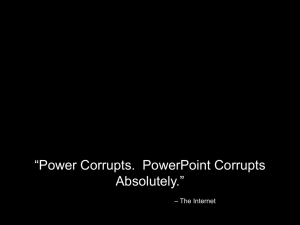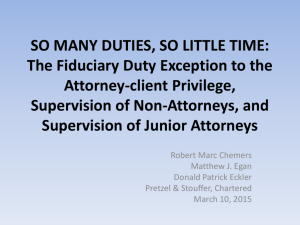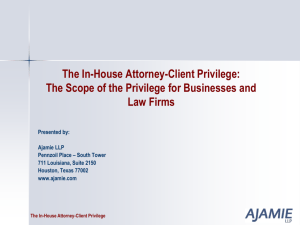PRWeek: PR Firms Navigate the Attorney
advertisement
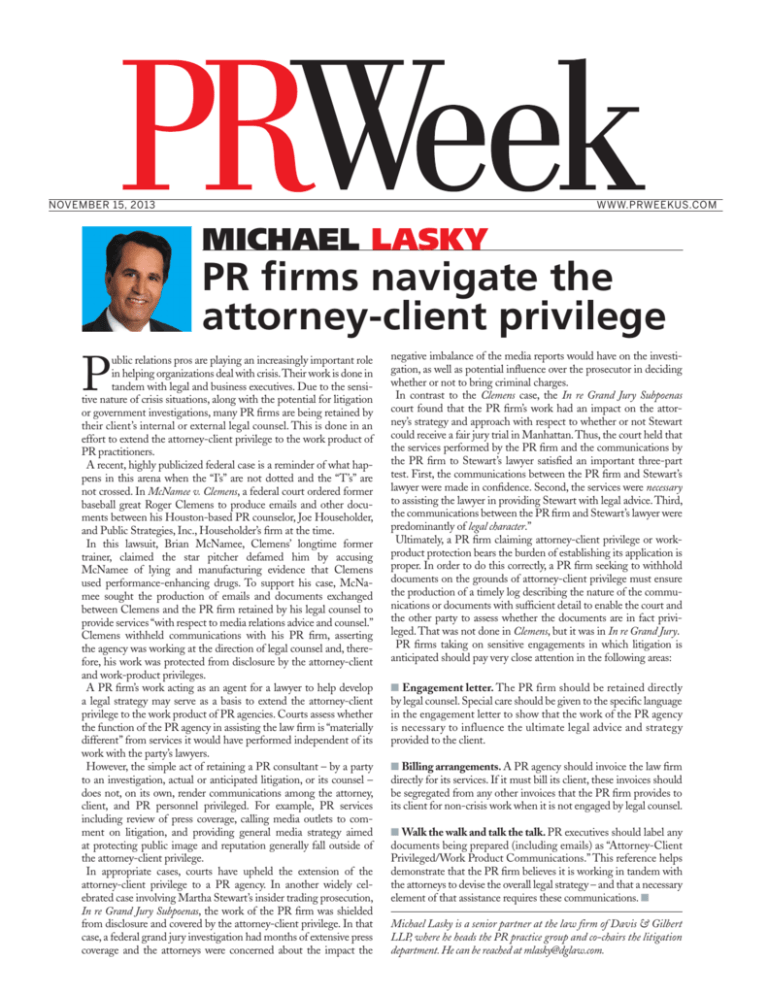
NOVEMBER 15, 2013 WWW.PRWEEKUS.COM MICHAEL LASKY PR firms navigate the attorney-client privilege P ublic relations pros are playing an increasingly important role in helping organizations deal with crisis. Their work is done in tandem with legal and business executives. Due to the sensitive nature of crisis situations, along with the potential for litigation or government investigations, many PR firms are being retained by their client’s internal or external legal counsel. This is done in an effort to extend the attorney-client privilege to the work product of PR practitioners. A recent, highly publicized federal case is a reminder of what happens in this arena when the “I’s” are not dotted and the “T’s” are not crossed. In McNamee v. Clemens, a federal court ordered former baseball great Roger Clemens to produce emails and other documents between his Houston-based PR counselor, Joe Householder, and Public Strategies, Inc., Householder’s firm at the time. In this lawsuit, Brian McNamee, Clemens’ longtime former trainer, claimed the star pitcher defamed him by accusing McNamee of lying and manufacturing evidence that Clemens used performance-enhancing drugs. To support his case, McNamee sought the production of emails and documents exchanged between Clemens and the PR firm retained by his legal counsel to provide services “with respect to media relations advice and counsel.” Clemens withheld communications with his PR firm, asserting the agency was working at the direction of legal counsel and, therefore, his work was protected from disclosure by the attorney-client and work-product privileges. A PR firm’s work acting as an agent for a lawyer to help develop a legal strategy may serve as a basis to extend the attorney-client privilege to the work product of PR agencies. Courts assess whether the function of the PR agency in assisting the law firm is “materially different” from services it would have performed independent of its work with the party’s lawyers. However, the simple act of retaining a PR consultant – by a party to an investigation, actual or anticipated litigation, or its counsel – does not, on its own, render communications among the attorney, client, and PR personnel privileged. For example, PR services including review of press coverage, calling media outlets to comment on litigation, and providing general media strategy aimed at protecting public image and reputation generally fall outside of the attorney-client privilege. In appropriate cases, courts have upheld the extension of the attorney-client privilege to a PR agency. In another widely celebrated case involving Martha Stewart’s insider trading prosecution, In re Grand Jury Subpoenas, the work of the PR firm was shielded from disclosure and covered by the attorney-client privilege. In that case, a federal grand jury investigation had months of extensive press coverage and the attorneys were concerned about the impact the negative imbalance of the media reports would have on the investigation, as well as potential influence over the prosecutor in deciding whether or not to bring criminal charges. In contrast to the Clemens case, the In re Grand Jury Subpoenas court found that the PR firm’s work had an impact on the attorney’s strategy and approach with respect to whether or not Stewart could receive a fair jury trial in Manhattan. Thus, the court held that the services performed by the PR firm and the communications by the PR firm to Stewart’s lawyer satisfied an important three-part test. First, the communications between the PR firm and Stewart’s lawyer were made in confidence. Second, the services were necessary to assisting the lawyer in providing Stewart with legal advice. Third, the communications between the PR firm and Stewart’s lawyer were predominantly of legal character.” Ultimately, a PR firm claiming attorney-client privilege or workproduct protection bears the burden of establishing its application is proper. In order to do this correctly, a PR firm seeking to withhold documents on the grounds of attorney-client privilege must ensure the production of a timely log describing the nature of the communications or documents with sufficient detail to enable the court and the other party to assess whether the documents are in fact privileged. That was not done in Clemens, but it was in In re Grand Jury. PR firms taking on sensitive engagements in which litigation is anticipated should pay very close attention in the following areas: n Engagement letter. The PR firm should be retained directly by legal counsel. Special care should be given to the specific language in the engagement letter to show that the work of the PR agency is necessary to influence the ultimate legal advice and strategy provided to the client. n Billing arrangements. A PR agency should invoice the law firm directly for its services. If it must bill its client, these invoices should be segregated from any other invoices that the PR firm provides to its client for non-crisis work when it is not engaged by legal counsel. n Walk the walk and talk the talk. PR executives should label any documents being prepared (including emails) as “Attorney-Client Privileged/Work Product Communications.” This reference helps demonstrate that the PR firm believes it is working in tandem with the attorneys to devise the overall legal strategy – and that a necessary element of that assistance requires these communications. n Michael Lasky is a senior partner at the law firm of Davis & Gilbert LLP, where he heads the PR practice group and co-chairs the litigation department. He can be reached at mlasky@dglaw.com.
